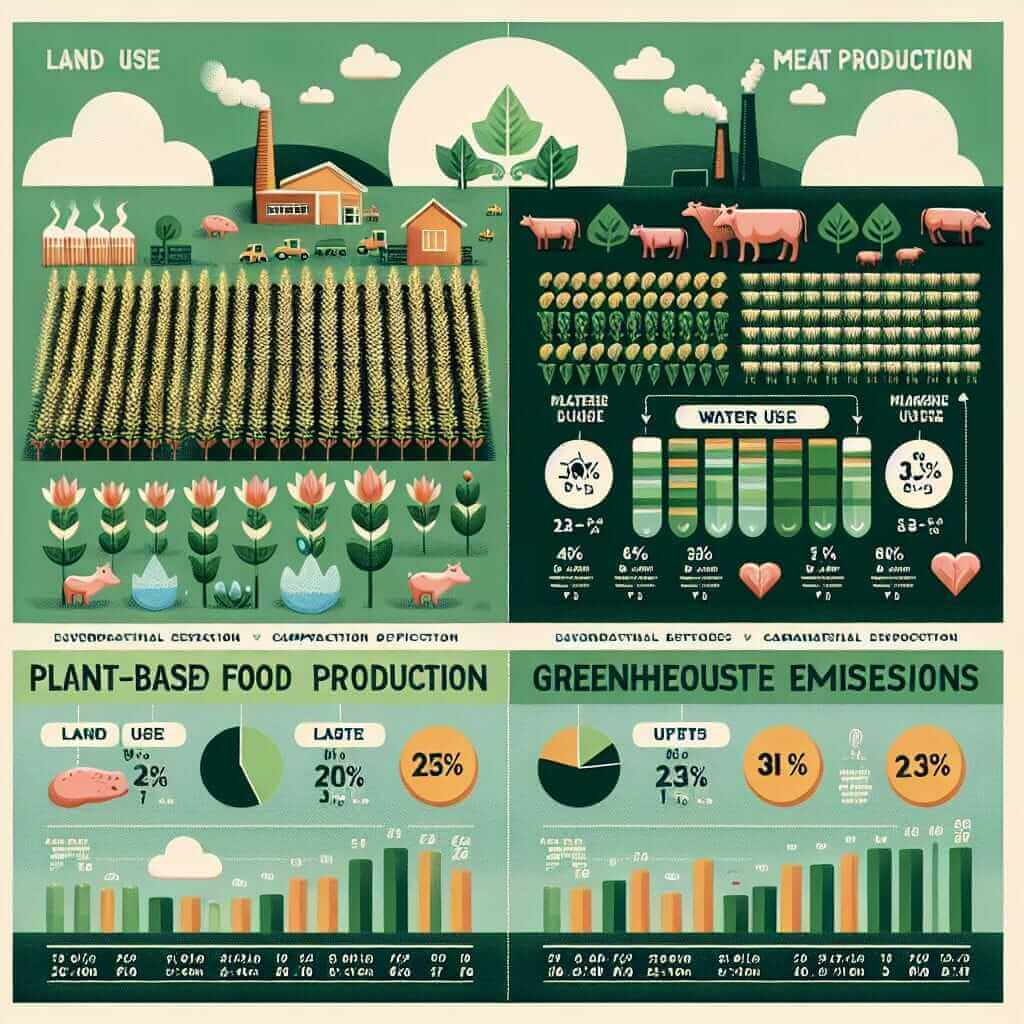The Reading section of the IELTS exam consists of 40 questions designed to test a variety of reading skills. These include reading for gist, reading for main ideas, reading for detail, understanding logical argument, and recognizing writers’ opinions, attitudes, and purpose. The texts are taken from books, journals, magazines, and newspapers.
One topic that frequently appears in contemporary reading passages involves current global trends and their impacts — a quintessential example being the rise of plant-based diets and how it is affecting global agriculture. Due to its growing relevance, this topic has a high likelihood of appearing in future IELTS exams.
Reading Passage
Below is a sample reading passage specifically designed to reflect the IELTS format, focusing on the topic “How is the rise of plant-based diets affecting global agriculture?”.
Passage: The Impact of Plant-Based Diets on Global Agriculture
The global agricultural landscape is undergoing a significant transformation as a result of the increasing popularity of plant-based diets. This shift is driven by a growing awareness of the health benefits of plant-based foods, coupled with concerns over the environmental impact of animal agriculture.
Plant-based diets are known for their lower ecological footprint. Animal agriculture is a leading contributor to greenhouse gas emissions, deforestation, and water pollution. On the other hand, plant cultivation tends to be less resource-intensive, necessitating fewer amounts of water, land, and energy. Consequently, as plant-based diets become more prevalent, there is a noticeable reduction in the demand for animal products. This shift is prompting farmers to reconsider their production strategies, often turning to crops that are more sustainable and economically viable.

Additionally, the rise of plant-based diets is fueling innovation in agricultural technology. Advances in vertical farming and hydroponics are allowing for efficient and scalable cultivation of vegetables and legumes in urban settings. These technologies not only reduce the reliance on traditional farmland but also minimize the carbon footprint associated with food transportation.
Nevertheless, the shift towards plant-based diets is also posing challenges. The monoculture farming practices required to meet the high demand for specific crops, such as soy and almonds, can lead to soil degradation and a loss of biodiversity. Hence, it becomes imperative to balance the scale of plant-based production with sustainable agricultural practices.
In conclusion, the rise of plant-based diets is influencing global agriculture in profound ways. While it offers ecological benefits and promotes innovative farming techniques, it also requires mindful implementation to mitigate potential negative impacts on the environment.
Questions
Question Type: Identifying Information (True/False/Not Given)
- Plant-based diets have a higher ecological footprint compared to animal-based diets.
- Farmers are forced to switch to more sustainable crops due to the increase in plant-based diets.
- Innovations in agricultural technology include vertical farming and hydroponics.
- The rise of plant-based diets has led to reduced carbon emissions from transportation.
Question Type: Matching Information
Match each statement with the correct paragraph (A, B, C, or D):
A. Paragraph 1: Introduction to the rise of plant-based diets.
B. Paragraph 2: Environmental benefits of plant-based foods.
C. Paragraph 3: Innovations in agricultural technology.
D. Paragraph 4: Challenges faced due to plant-based diets.
Question Type: Sentence Completion
Complete the sentences with words from the text:
- The popularity of plant-based diets is attributed to both health benefits and ____ over the impact of animal agriculture.
- Monoculture farming can result in the loss of ____.
Answers and Explanations
- False – Plant-based diets have a lower ecological footprint.
- True – The text states that the demand reduction prompts farmers to shift to more sustainable crops.
- True – The passage specifically mentions vertical farming and hydroponics.
- Not Given – The text talks about the reduction in the carbon footprint from crops but does not specifically mention emissions from transportation.
Matching Information:
- A. Paragraph 1: The rise of plant-based diets.
- B. Paragraph 2: Environmental benefits.
- C. Paragraph 3: Technological innovations.
- D. Paragraph 4: Challenges.
Sentence Completion:
- Concerns
- Biodiversity
Common Mistakes
True/False/Not Given
- Misreading/Narrow Reading: Ensure to understand what is explicitly stated versus what is implied or not mentioned.
Matching Information
- Paragraph Summary Confusion: Pay close attention to each paragraph’s main idea and supporting details.
Sentence Completion
- Incorrect Word Choice: Choose words directly from the passage to fill in the blanks.
Vocabulary
- Ecological footprint (noun): /ˌiːkəˈlɑːdʒɪkəl ˈfʊtˌprɪnt/ – the impact of human activities measured in terms of the area of biologically productive land and water required to produce the goods consumed and to assimilate the wastes generated.
- Deforestation (noun): /ˌdēˌfôrəˈstāSH(ə)n/ – the action of clearing a wide area of trees.
- Hydroponics (noun): /ˌhīdrəˈpäniks/ – a method of growing plants without soil by using mineral nutrient solutions in an aqueous solvent.
Grammar Points
Use of Present Perfect and Present Continuous for Trends
- Present Perfect: “The global agricultural landscape has undergone a significant transformation…”
- Present Continuous: “The shift is driving farmers to reconsider their production strategies.”
Connecting Words for Cause and Effect
- “As a result of…”
- “Consequently…”
- “Hence…”
Advice
To maximize your score in the Reading section, it’s crucial to practice regularly, diversify your reading materials, focus on improving vocabulary, and understand the various question types. Hone in on reading strategies like skimming and scanning for information and practice under timed conditions to simulate exam situations accurately. Good luck!